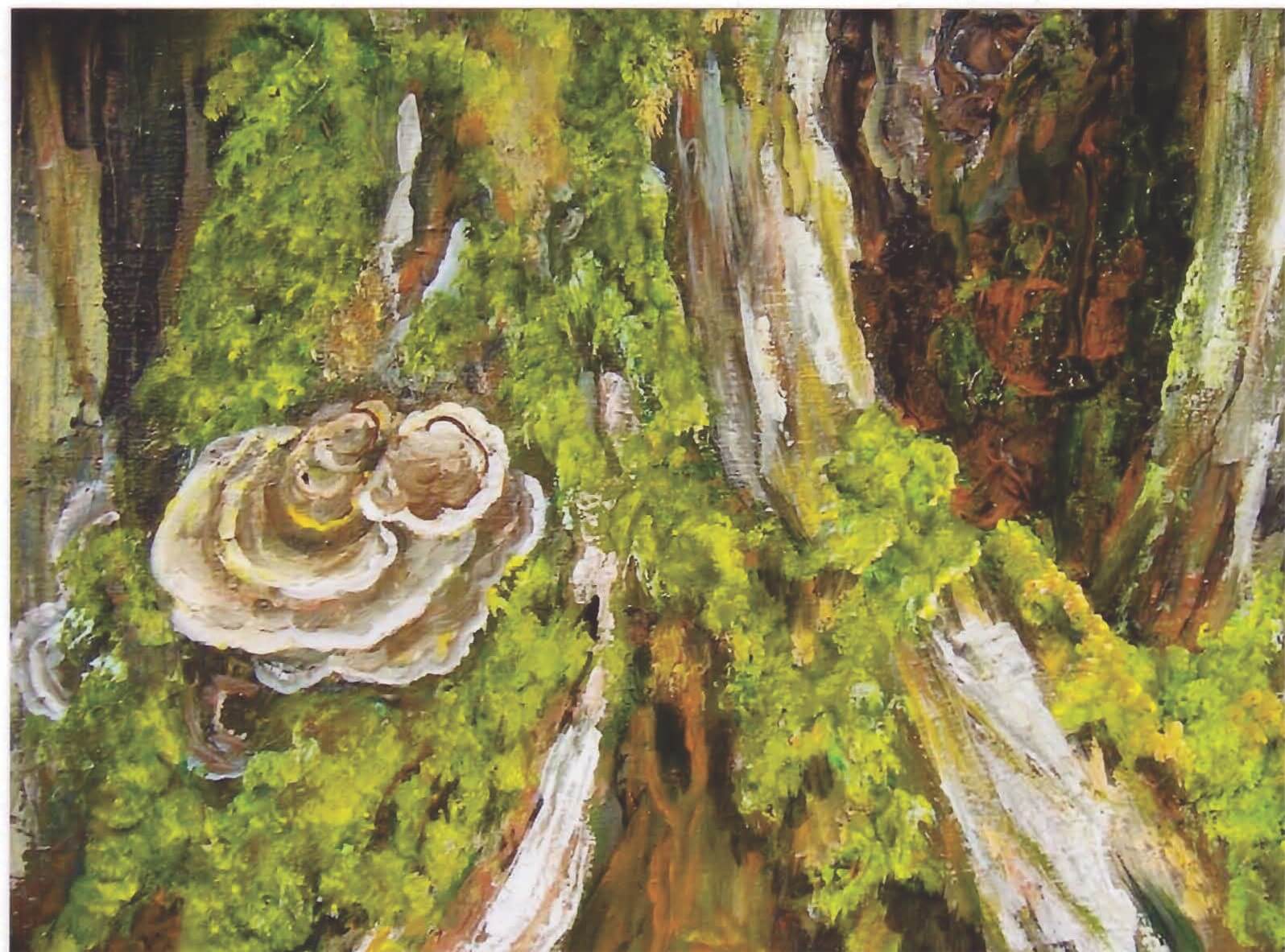An Open Letter on Divesting as Protection of Creation
Andrew Conradi, Victoria
Volume 38 Issue 4, 5 & 6 | Posted: July 7, 2023

Bishop Gary Gordon of Victoria:
You have said you would like each parish to have a Laudato Si’ Movement Animator.
I, as a Laudato Si’ Animator, parishioner of Our Lady of the Rosary, member of Little Portion Fraternity of the Secular Franciscan Order and to mark Laudato Si’ Week 2023 (21-28 May), call on the Diocese of Victoria to issue a public statement to support and promote Pope Francis’s urgings to disinvest from the fossil fuel industries. https://laudatosimovement.org/divestment/
I have carefully read the encyclical Laudato Si’. His Holiness the Pope makes a very clear call to Catholics worldwide to align their investment policy with the moral imperative to care for Creation. “The urgent challenge to protect our common home includes a concern to bring the whole human family together to seek a sustainable and integral development, for we know that things can change… . It is my hope that this Encyclical Letter… can help us to acknowledge the appeal, immensity and urgency of the challenge we face.” (Pope Francis, 2015, Laudato Si’, 13, 15).
Caring for Creation means that the “use of highly polluting fossil fuels–especially coal, but also oil and, to a lesser degree, gas–needs to be progressively replaced without delay” (Laudato Si’, 165). Consequently, this entails “spreading the use of ethical, responsible and integral criteria for investments, avoiding the support to companies that harm… environmental ecology (for example fossil fuels)”.
That is why I believe Victoria diocese should divest from fossil fuels. Divesting means getting rid of any form of financial assets related to companies that extract fossil fuels, or that participate in developing such new projects. On the other hand, divesting also means investing in meaningful, sustainable, and less risky projects.
Divestment should be a public decision: by openly saying that we divest from fossil fuels, we bring our voice to the many prophetic voices of the hundreds of dioceses and Catholic institutions that have already committed to do so. Publicly divesting would be our contribution in advance to a broader movement for a fair and rapid transition to greater sustainability.
Laudato Si’ was written eight years ago. Has the Diocese of Victoria already decided to disinvest from fossil fuels? If so I have been unable to find any such statement online. Transparency requires that divestment decisions should be made public because, after all, are not diocesan funds partly held in trust for the faithful? By openly saying that we divest from fossil fuels, I repeat that we bring our voice to the many prophetic voices of the hundreds of dioceses and Catholic institutions that have already committed to do so.
The Holy Father, during the prayer service held in Saint Peter’s Square on 27 March 2020 urged us “to seize this time of trial as a time of choosing.”
On 18 June 2020, on the fifth anniversary of the landmark encyclical Laudato Si’ on the need to protect nature, life and defenceless people, the document Journeying towards care for our Common Home prepared by the Interdicasterial Table of the Holy See on Integral Ecology.
Journeying was published to guide us on the path to the implementation of the teachings of the encyclical. The document urges Catholics to defend the rights of local populations to have a say in whether their lands can be used for oil or mineral extraction and the right to take strong stands against companies that cause environmental disasters or over-exploit natural resources such as forests.
More that 40 faith organizations from around the world, over half of them Catholic, have pledged to divest from fossil fuel companies. The Vatican bank has said it does not invest in fossil fuels and many Catholic dioceses and educational institutions around the world have taken similar positions. See also this link: https://www.vaticannews.va/en/church/news/2022-07/multimillion-divestment-from-fossil-fuels-catholic-organizations.html.
This year’s Earth Day announcement of organizations shedding their investments in fossil fuels rang up another 31 religious institutions globally divesting from oil, gas and coal. Among them is the Carmelite Order: “Divestment is a concrete action in service of the church and humankind and “in line with the proposals of the encyclical Laudato Si’ related to the search for an Integral Ecology,” Fr. Míceál O’Neill, Carmelite Prior General, said in a statement. Also the (Canadian) Lacombe province of the Oblates of Mary Immaculate is getting close to a divestment announcement of its own.
This year, the global Earth Day celebration carries the theme “Invest in Our Planet.” Proponents of fossil fuel divestment say it is a means to revoke the social and moral license for coal, oil and gas to power the world’s economies and to redirect financing toward renewable energy sources. The greenhouse gas emissions released from burning fossil fuels are the leading driver of climate change.
Hilda Koster, St. Michael’s-Regis College theology professor wrote in an email to The Catholic Register that action or inaction on climate change is “ … an issue that touches upon the very core of the Christian faith.
Theologically, climate change is about our relationship with God as Creator and sustainer of this wondrous planet. Deciding to continue to take part in the destruction of the conditions for the flourishing of life is a decision against God’s creation and, hence, against God.”
“According to the commitments undertaken in the Paris Agreement to restrain global warming, it is absurd to permit the continued exploration and expansion of fossil fuel infrastructures. Let us raise our voices to halt this injustice towards the poor and towards our children, who will bear the worst effects of climate change. I appeal to all people of good will to act in conformity with these perspectives on society and nature.” (Message of His Holiness Pope Francis For The World Day Of Prayer For The Care Of Creation 2023, released 13 May 2023).
I ask you to raise your voice! This message has special relevance to Canadians as it refers to the Pope’s visit to Lac Ste Anne in Alberta.
In Canada, the Church does have opportunities to act, said Mouvement Laudato Si’ Movement – Canada co-ordinator Agnes Richard. With the help of MLSM’s Catholic Eco-Investment Acceleratot Toolkit, any diocese, Catholic school board or institution can begin to line up its investments with the clear teaching of the Roman magisterium on the environment, she said.
I quote here from the Laudato Si’ Prayer Book, Stations of the Cross: Ecological Way of the Cross 10th Station by Br Ben Ayodi, OFM (Cap): “Just as Jesus was stripped of his clothes and dignity, so too the earth is stripped of its minerals and nutrient rich topsoil. Help us to seek and develop a just transition to renewable forms of energy and restrain our consumption so that the earth may be restored to its glorious bounty.”
I also ask that the Diocese of Victoria unequivocally insist on high environmental standards in new church buildings to protect future generations and play our part in combating the effects of climate change but also to protect creation.
How and to what extent does the Diocese “Ensure the construction of well insulated buildings with low or zero-carbon emissions in all housing [and building] plans” as asked for in Journeying? The church must be seen to lead and not just rely on governments, otherwise how relevant are we in the face of our greatest existential threat (next to nuclear war)?
And finally let us remember this: Christians need to: ‘…realize that their duty towards nature and creation is an essential part of their faith’ (St John Paul II, 1990, Peace Day Message, no. 15) and “As far as the Church is concerned, the social message of the Gospel must not be considered a theory, but above all else a basis and a motivation for action.” (St John Paul II, 1991, Centesimus Annus, n. 57)
Archbishop St Óscar Romero y Galdámez, Bishop and Martyr (1917 – 1980) wrote: “A church that doesn’t provoke any crisis, a word of God that doesn’t unsettle, a word of God that doesn’t get under the skin, a word of God that doesn’t touch the real sin of society in which it is being proclaimed – what gospel is that? Very nice, pious considerations that don’t bother anyone, that’s the way many would like preaching to be. Those preachers who avoid every thorny matter so as not to be harassed, so as not to have conflicts and difficulties, do not light up the world they live in.”
In this regard please encourage and request all parish councils to consider making a Laudato Si’ Action Plan.
Andrew Conradi, Victoria

